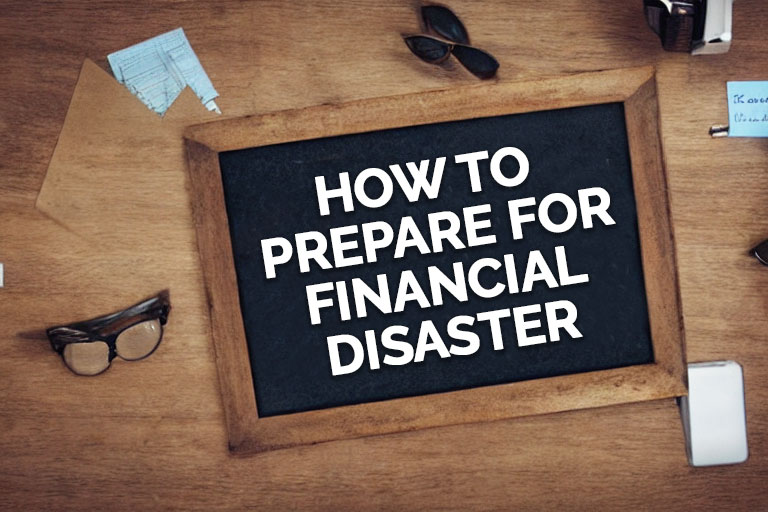How To Prepare For Financial Disaster Due To Economic Collapse In The United States

Picture this: the economy is in shambles, unemployment rates are skyrocketing, and the future seems increasingly uncertain. As an SEO specialist and content creator, I'm not just here to paint a gloomy picture. I'm here to help you prepare for financial disaster due to economic collapse in the United States. My goal is to guide you towards financial resilience in the face of adversity, providing actionable tips that you can implement right away. Let's begin our journey towards financial preparedness together.
Building an Emergency Fund: Your Financial Safety Net
Remember the old saying, "Save for a rainy day"? Well, it's time to put that into practice. One of the most crucial steps in preparing for financial disaster is creating an emergency fund. This acts as a financial safety net during economic turbulence, providing a buffer against unexpected expenses and income loss.
Here are some steps to build your emergency fund:
Determine your target: Aim to save at least 3-6 months' worth of living expenses in your emergency fund.
Start small: If this seems daunting, begin by setting aside a smaller amount each month and gradually increase it.
Automate savings: Set up automatic transfers from your checking account to a dedicated emergency fund account.
Diversifying Your Investments: Spreading the Risk
"Don't put all your eggs in one basket" is a timeless piece of advice, especially when it comes to investing. Diversifying your investment portfolio can help protect your assets in times of economic collapse. By spreading your investments across various asset classes, industries, and geographical locations, you can minimize the impact of market fluctuations.
To diversify effectively, consider the following:
Mix asset classes: Include a combination of stocks, bonds, and cash in your portfolio.
Invest globally: Expand your investments beyond the United States to mitigate country-specific risks.
Rebalance regularly: Periodically review your portfolio and make adjustments to maintain your desired risk level.
Reducing Debt: Lightening Your Financial Load
Debt can feel like a heavy burden on your shoulders, particularly during an economic collapse. By reducing your debt, you'll have more financial flexibility and a better ability to weather financial storms.
Take these steps to tackle debt:
Prioritize high-interest debt: Focus on paying off high-interest debt, such as credit card balances, first.
Create a debt repayment plan: Develop a realistic plan to pay off your debts systematically.
Avoid new debt: Resist the temptation to take on additional debt during times of economic uncertainty.
Enhancing Your Skillset: Becoming More Employable
In times of economic collapse, job loss is an unfortunate reality for many. By improving your skills and staying adaptable, you can increase your employability and secure your income.
Here are some ways to enhance your skillset:
Pursue professional development: Take advantage of online courses, workshops, and certifications to expand your knowledge.
Network: Attend industry events and leverage social media platforms like LinkedIn to build connections.
Showcase your expertise: Share your knowledge through blog posts, podcasts, or social media to establish yourself as a thought leader in your field.
Conclusion: Embrace Proactivity to Face Financial Disaster
Preparing for financial disaster due to economic collapse in the United States is not a sign of pessimism, but rather an act of proactivity. By building an emergency fund, diversifying your investments, reducing debt, and enhancing your skillset, you'll be better equipped to weather the storm and emerge financially resilient. So, take control of your financial future today, and embark on this journey towards financial preparedness with confidence and determination.
Additional Tips for Financial Preparedness
As you take steps to protect your financial well-being, consider these additional tips to further bolster your preparedness:
Review your insurance coverage: Ensure you have adequate coverage for your home, health, life, and other essential insurance policies. Periodically review your coverage to account for changes in your financial circumstances.
Create a budget: Develop a realistic budget to monitor your income and expenses, helping you identify areas for cost savings and prioritize your financial goals.
Stay informed: Keep abreast of economic news and developments, as well as changes to government policies that could impact your financial situation. This knowledge can help you make informed decisions and adapt to changing circumstances.
Establish a support network: Build relationships with friends, family, and professionals who can provide emotional and financial support during times of economic collapse.
Maintain a long-term perspective: While it's essential to be prepared for financial disaster, remember to maintain a long-term perspective on your financial goals. Stay focused on your long-term objectives, and remain patient and disciplined in your approach.
H8: Final Thoughts: The Road to Financial Resilience
As an SEO specialist and content creator, my aim has been to provide you with a comprehensive and engaging guide on how to prepare for financial disaster due to economic collapse in the United States. I hope that this article has equipped you with the knowledge and tools to take control of your financial destiny, no matter the challenges that may lie ahead.
In times of uncertainty, it's crucial to remember that you have the power to shape your financial future. By taking proactive steps and remaining adaptable, you can achieve financial resilience and emerge stronger from any economic collapse. So, start your journey towards financial preparedness today, and face the future with confidence and peace of mind.
